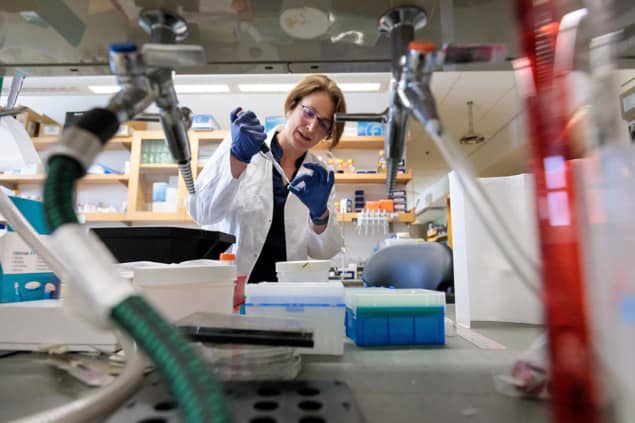Margaret Gardel is a biophysicist and professor at the University of Chicago, US, where she is director of the new Center for Living Systems – one of four newly established National Science Foundation Physics Frontier Centers. She is also the director of the James Franck Institute and is a member of the Institute of Biological Systems. Her research group, the Gardel Lab: Living Matter and Mechanobiology, focuses on how living matter emerges from collections of molecules to control the physiology of cells and tissues

What skills do you use every day in your job?
That’s an interesting question, because they are skills I would never have expected would be so important when I was an undergraduate studying physics. I use a lot of time management and emotional regulation skills. A lot of my work now is self-organized: I have to organize and lead my research group, and I need to know how to prioritize the different activities we’re doing.
The third skill is harder to express succinctly, but I have had the good fortune of doing research in a lot of different areas, and I know the approaches that do or don’t work. So, one skill I really enjoy using is finding parallels between different areas of physics, chemistry or biology, and using those parallels to gain insights into how to make a problem more tractable.
What do you like best and least about your job?
I love the fact that I get to work with motivated and extraordinary people. When I became interested in continuing to be a scientist – and it wasn’t until I was in graduate school that I really thought this was something I wanted to do for my career – one of my main motivations was that you get to work within a community of people who are all very excited about what they do. They’re self-motivated, creative and brilliant, and this is a fun aspect of my job.
Another thing I love is the new opportunities it brings. When I was a PhD student, my main job was working in the lab and making advances in one small area of science. I didn’t quite appreciate how that would lead to, for instance, having an interview with you today. Back then, I didn’t understand how to communicate more broadly to people outside my field, but I love the fact that my career allows me to constantly learn new things, both in physics and outside of physics.
What I don’t like about my job is having to say “no”. I’m constantly having to prioritize and say “no” to opportunities I would love to be able to do. That’s hard, and it makes me feel bad that I can’t do everything. I don’t like that.
What do you know today that you wish you had known at the start of your career?
I spent a lot of time feeling like an imposter – I still do – and I wish I could tell myself 20 years ago that it’s okay to feel that way and you just have to get used to it. I had people tell me this at the time, and I didn’t believe it, but it’s okay to feel uncertain. You just have to manage those feelings. I would have saved myself a lot of stress, worry and time spent not feeling very good about myself if I’d known that.



